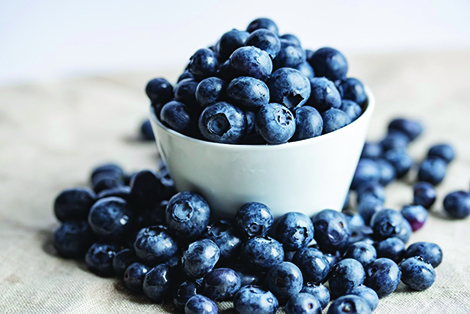By Hari Pulapaka and Jenneffer Pulapaka
A whole-food, plant-based (WFPD) diet low in sodium has been conclusively shown to reduce the risk of heart disease. But which foods are the stars and stewards of healthy hearts?
The list below gives our “Top 10” heart-healthy foods. Each item has valuable medical attributes that make them integral ingredients to include in any diet that promotes and maintains heart health.
1. Oatmeal. Oats are high in fiber and possess cholesterol-reducing properties. Additionally, studies have shown that oats in collaboration with vitamin C prevent HDL (“good”) cholesterol oxidation – thus fighting the progression of heart disease.
2. Flaxseed. Increasing the levels of omega-3 fatty acids has been shown to reduce the occurrence of cardiovascular disease. In a WFPB diet, flaxseeds provide a rich source of omega-3 fatty acids. Studies have shown that daily consumption of flaxseeds may help maintain lower blood pressure. Flaxseeds have binding qualities that make them a useful substitute for eggs and processed flours.
3. Berries. They contain high amounts of polyphenols. And most berries are low in calories and high in moisture and fiber. They contain natural antioxidants such as vitamins C and E, and micronutrients – all essential for heart health.
4. Dark leafy greens. A diet rich in collards, mustards, kale, spinach, etc. (and black-eyed peas) promotes heart health. Additionally, they have low glycemic indices and low caloric profiles, which makes them particularly beneficial in maintaining a healthy weight.
5. Pomegranate. Pomegranates are a rich source of potent antioxidants which act against several types of free radicals. Additionally, pomegranates help protect against the oxidation of HDL (“good”) cholesterol and help reduce blood pressure.
6. Walnuts or almonds. Nuts contain unsaturated fatty acids and help lower LDL (“bad”) cholesterol and triglyceride levels. Specifically, walnuts and almonds are rich in vitamins, minerals, and heart-healthy fats. They are, however, also high in calories, so they must be consumed in moderate portions.
7. Beans. All legumes are rich in minerals and fiber – beans especially so. Because beans don’t contain saturated fats and are rich in protein, they provide healthy nutrition and satiation. Beans are a deliciously versatile component to help maintain a heart-healthy diet and are an essential ingredient in many cuisines.
8. Soy. Foods containing soy protein have been shown to reduce cholesterol, even as the precise mechanisms are still being actively researched. Edamame and soy protein are good examples of ingredients that can be easily incorporated into a heart-healthy diet.
9. Plant sterols. These compounds, naturally found in plant cell membranes, are similar in chemical structure to the human body’s cholesterol. When our diet is plant-based, the plant sterols compete with cholesterol for absorption into our digestive system, resulting in a blocking and hence, reduction of cholesterol absorption.
10. Beets and beet greens. Beets (juice, root, and leaves) are naturally concentrated in nitrates, which have been shown to reduce blood pressure and increase oxygen levels. A diet that includes all edible aspects of beets helps increase oxygen levels and improve overall cardiovascular function.

Hari Pulapaka is a professional chef. Dr. Jenneffer Pulapaka specializes in diabetic and vascular disease.